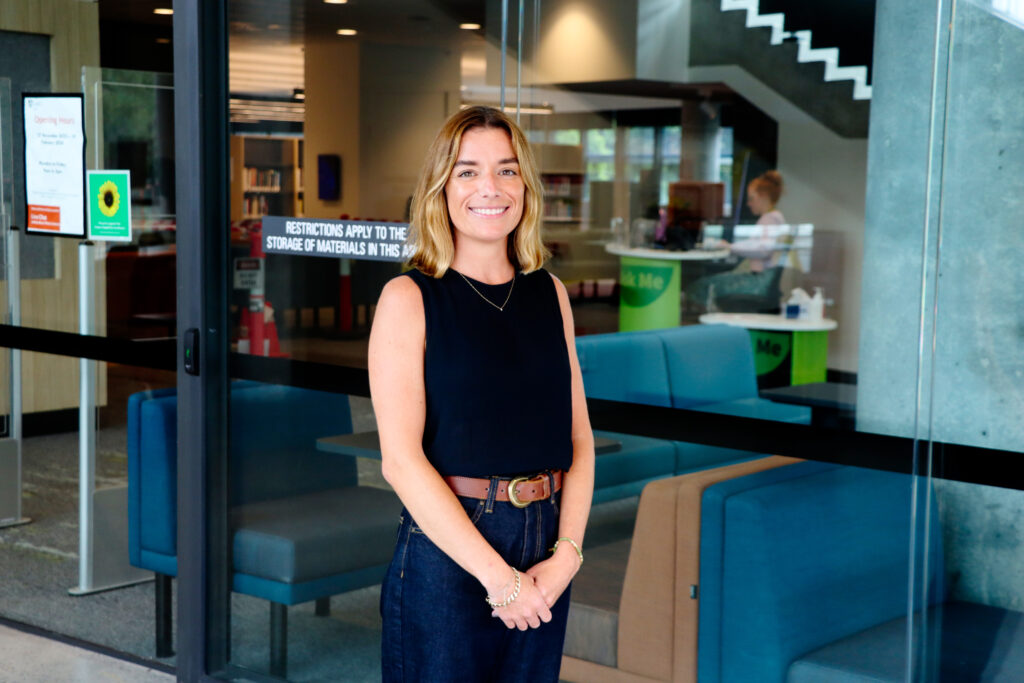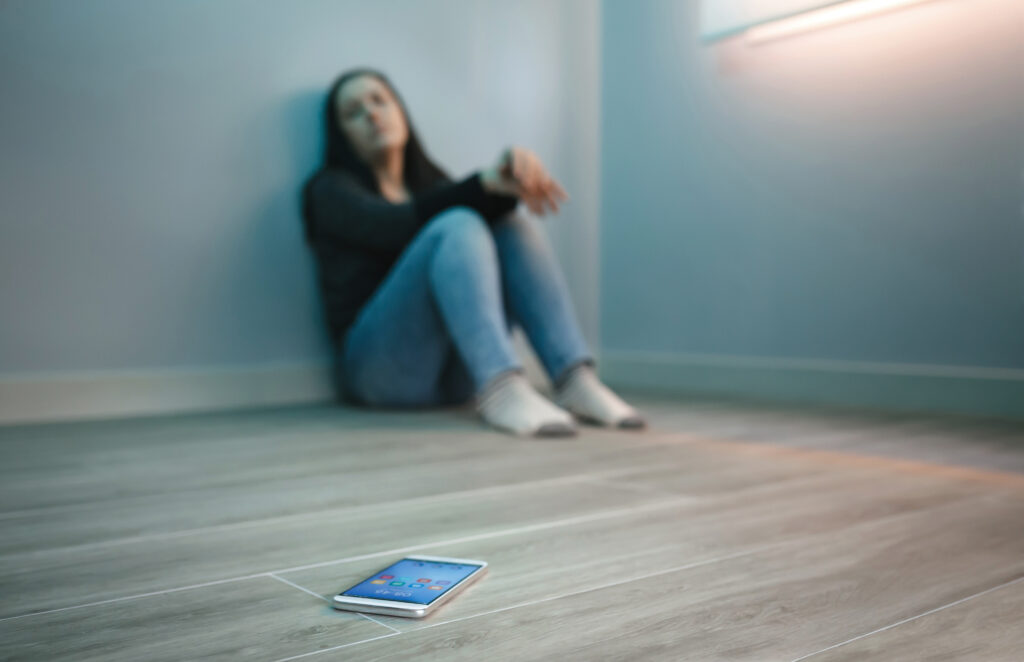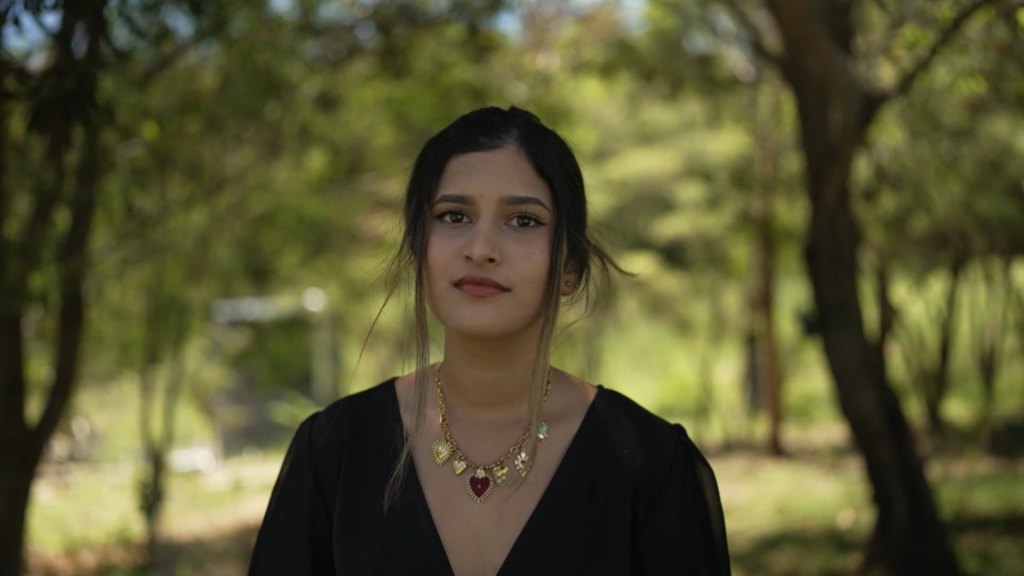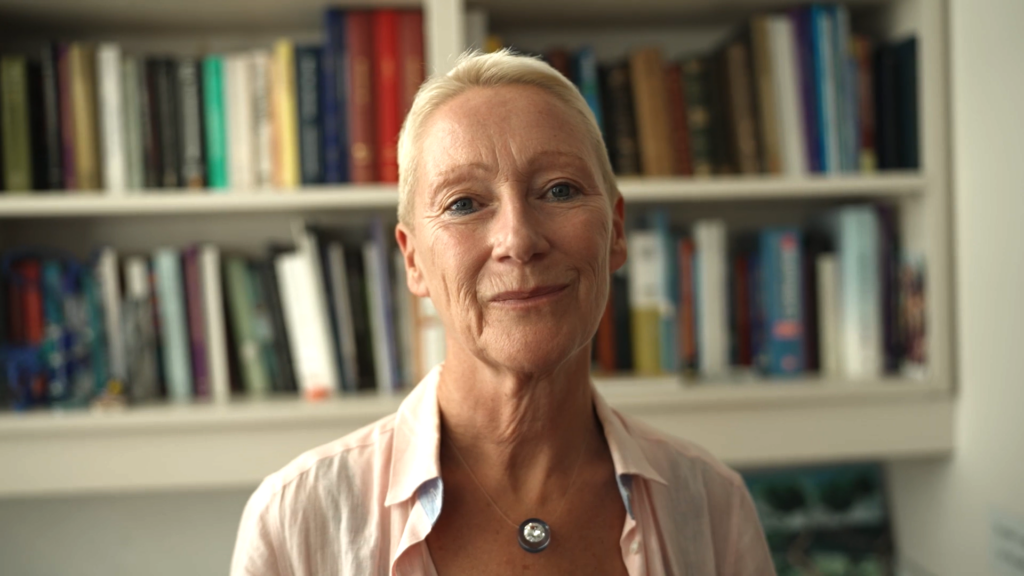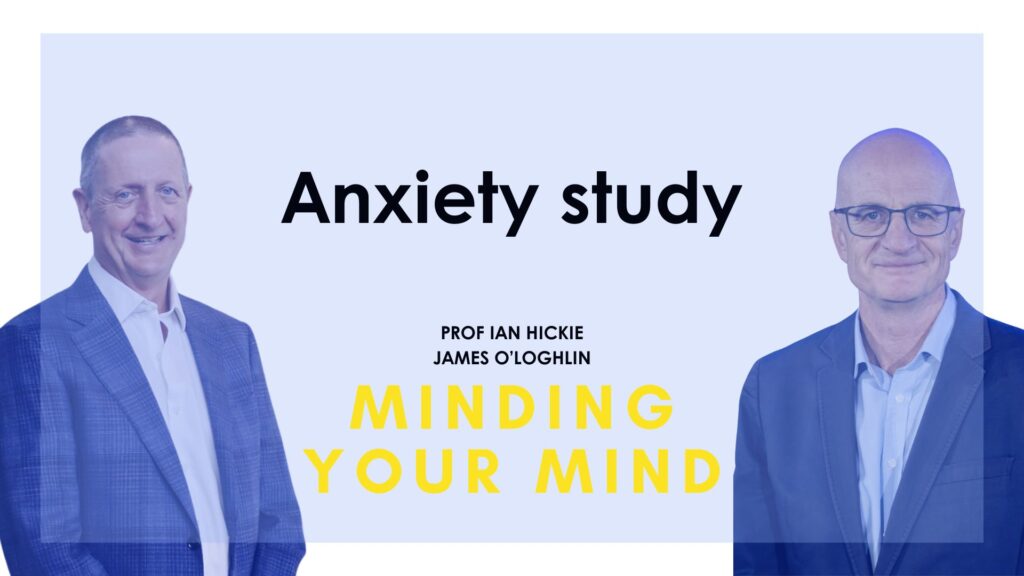Lived Experience Researcher, Alexis, 34, Sydney, experienced what she now knows were symptoms of anxiety for years, but they escalated significantly while working in a high-stress role during the COVID-19 pandemic.
Alexis first began to notice physical symptoms of anxiety, including weight loss, gut problems, and skin rashes. She attended multiple medical appointments in a bid to pinpoint the cause of her symptoms for about four months.
It wasn’t until physical illness was ruled out that Alexis recognised she was experiencing a significant mental health episode. In 2020, she was diagnosed with anxiety, marking the beginning of her journey toward recovery and seeking the support she needed. After stepping away from a stressful role, Alexis now works full-time as a ‘Lived Experience Researcher’ at the Brain and Mind Centre, University of Sydney.
As a Lived Experience Researcher in the Youth Mental Health & Technology Team, Alexis draws on her personal experience with mental ill-health to inform research, co-design studies, and advocate for the meaningful inclusion of lived experience voices. Her team’s lived experience work helps build an evidence base on how lived experience enhances research quality and translatability, while also establishing gold-standard procedures for its integration. This work is driven by the belief that true innovation in mental health care comes from meaningful partnerships with those who have lived it, ensuring that research outcomes, services, and digital health interventions are both relevant and effective.
Alexis is a participant in QIMR Berghofer’s Living with Anxiety (LwA) study, which aims to identify genes influencing a person’s risk of developing anxiety and how well treatments work. The outcomes will support Australian research into the causes, treatment and prevention of the illness.
This is Alexis’s story.
Upon reflection, Alexis now recognises that some of her behavioural traits during her childhood and teens were symptoms of anxiety.
“Today, knowing what anxiety looks and feels like. I’ve definitely experienced episodes of anxiety throughout my life”
“I was introduced to mental health at a young age after losing a loved one to suicide. At the time, I didn’t fully understand its significance, but looking back, I can see how it could have shaped my own experience.
“Even as a child and teenager, I often felt overwhelmed, worried about what others thought of me, and avoided situations that triggered my anxiety.
“I had seen psychologists on and off over the years, but it wasn’t until the prolonged stress of my job at the time took its toll, that my mental health deteriorated to a point I could no longer ignore. That was when I realised, I needed real support,” Alexis said.
About five years ago, Alexis started noticing strange physical symptoms.
“I lost 12 kilos, developed gut issues, and broke out in rashes all over my body,” said Alexis.
“I couldn’t sleep, I had migraines, and I felt constantly on edge. I went through multiple medical appointments and tests, trying to figure out what was wrong.
“My whole personality started to shift. I felt completely spaced out, like I was living in a different world. I couldn’t concentrate on anything, and even simple tasks, like grocery shopping or sending one simple email felt impossible.”
After months of searching for answers, Alexis reached a turning point.
“Eventually, I realised that what I was experiencing wasn’t just physical, it was my mental health. That’s when I sought support, meeting with a GP initially, then a psychiatrist and psychologist marked the beginning of my recovery.
People often don’t realise that anxiety can be so physical. It’s not just feeling stressed or worried, it can take a real toll on your body and physical health. Recognising that link was a game-changer for me, and it’s something we need to talk about more,” said Alexis.
Alexis reflects on the stigma that continues to weigh heavily on mental health disorders, such as anxiety.
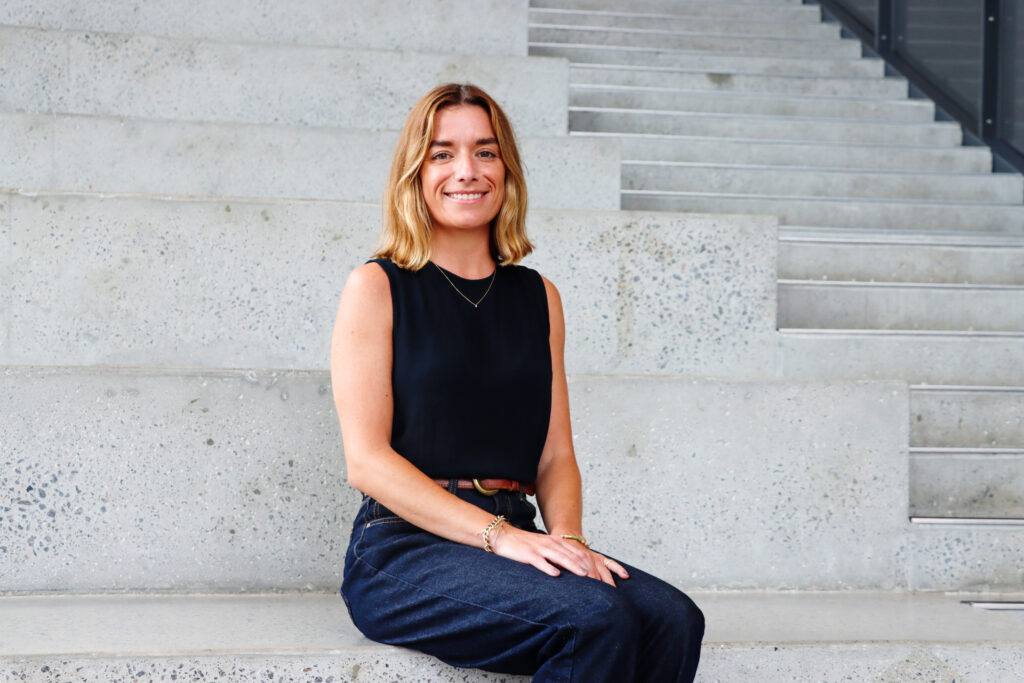
“I’ve found that people with personal experience or a deeper understanding of mental health tend to show more empathy and compassion. But being around those who lack this awareness, especially when I’m feeling anxious can be incredibly triggering. There’s still this idea that mental health struggles aren’t as ‘real’ or as serious as physical health conditions, which means people often get dismissed or don’t seek help until they reach a crisis point.
We need to normalise conversations about mental health and genuinely value lived experiences. My hope is that by increasing mental health literacy and fostering a culture of understanding, we can create a world where seeking support feels safe and free from judgment”.
Nowadays, Alexis continues to live with anxiety, but she has learned how to manage it in a way that works for her.
“Recovery isn’t a straight path, and anxiety isn’t something that just disappears. I’ve essentially had to retrain my brain, Alexis said.
To manage her anxiety, Alexis turns to music, spends time outdoors and with friends, and staying active. However, some challenges persist.
“Rumination is something I still struggle with. I might seem fine, going to work, socialising but when I get home, I often replay everything I said throughout the day, over and over again,” she shared.
Therapy has played a big role in my journey but Alexis’s emphasises that it isn’t a quick fix.
“Therapy is work. You have to put in the effort to see change, and what works for you can shift over time. Different life circumstances might require different approaches, and that’s okay.”
Alongside therapy and lifestyle changes, medication has also been an important part of Alexis’ treatment.
“For me, medication has helped create a bit of a buffer, making it easier to do the work in therapy and implement the strategies that help me manage day to day.
“It’s been a process, and there are still tough moments, but I’m in a much better place. I’ve learned how to manage my anxiety rather than let it define me, said Alexis.
Alexis has an important message for other Australians living with anxiety.
“First and foremost: it’s not your fault. Like any other medical condition, anxiety is real, valid, and treatable.
“Seeking help can be difficult, especially due to stigma, but mental health struggles don’t have to define you, and you are worthy of support, you are capable of healing, and most importantly, you are not alone.”
Alexis is encouraging other Australian adults with experience of anxiety, past or present, to register for the LwA study. Find out more at livingwithanxiety.org.au.

